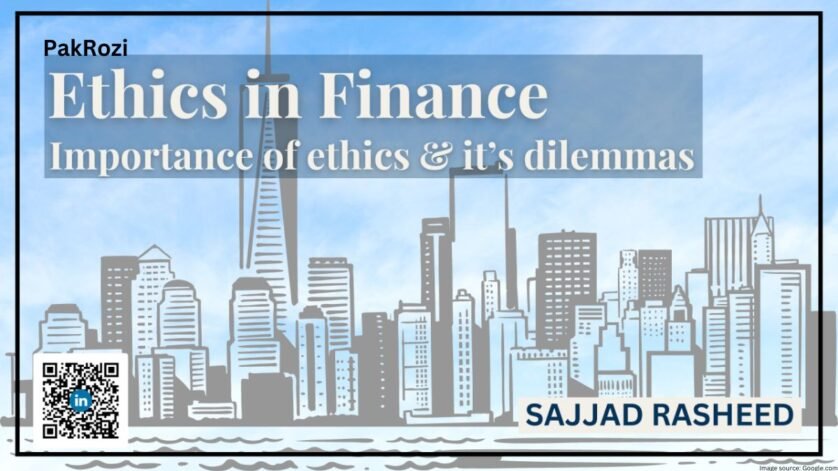The finance and banking industry was thus one of the backbones of the world economy and, so far, presented such an overwhelming number of ethical dilemmas at the same time.In such an industry, professionals are often presented with seeking solutions for various situations where motives of profit, regulatory frameworks, and moral considerations collide.
As one has to deal with the ethical dilemmas that prevail by being aware of both legal boundaries and corporate responsibility, it encompasses much in understanding and knowledge. If such confidence is to be maintained among public, then financial industries must encourage transparency, a sense of justice, and trust. Long-term success will result from the ultimate triumph of ethical issues and will further enforce a culture of accountability and integrity on the financial system.
Table of Contents
Conflicts Of Interest In Finance And Banking
A conflict of interest occurs when a financial professional or institution is likely to benefit in person as a result of decisions made on behalf of clients or employers.
- This is quite against the trust placed on financial advisors.
Maintaining fairness creates the foundation for maintaining ethics in finance.
Insider Trading In Finance And Banking
Insider trading is access to non-public, confidentially acquired information in order to realize a profit through the stock market, which is both illegal and ethical.
- It gives unfair advantage to those able to take advantage of it, at the expense of other investors.
- And not to forget, market integrity and public trust are also compromised.
Misleading Financial Reporting
In this regard, the financial institutions have to suffer pressures in the form of encouraging or even hiding data related to financial service by the company for betterment of their performances.
- These result in misleading investors, regulators, and other interested parties.
- A code of ethics properly nurtured requires reporting to be transparent and honest.
Predatory Lending
Predatory lending is as defined as the loans that are offered at very high levels of interest rates and on unequal terms that usually target the vulnerable borrowers.
- These practices may eventually result in financial devastation for an individual and harm the reputation of a lender.
- Ethical lending should be such that the amount borrowed shall be sensible, understandably clear, and tailored according to the needs of the borrower.
Anti-Money Laundering
Means illegal laundering of large ill-gotten money into apparently clean funds.
- AML regulations are important to banks because it sets in place that financial institutions must follow Anti-Money Laundering procedures to prevent illegal transactions.
- There is a need to monitor and report such suspicious financial activity for the proper detection and reporting of such suspicious activities.
Aggressive Investment And Overleveraging
Some financial institutions can invest in maximized but excessive amounts that are not necessary, hence leading to losses of clients and investors.
- Overleveraging can cause economic instability.
- Ethical finance practice is when the risk variables in investment are disclosed and understood.
Customers’ Privacy And Data Protection
Financial establishments collect a lot of details on people’s matters due to the increasing technological nature. The issue of customer privacy and data security becomes an ethical issue in finance.
- Leaks of sensitive financial information may lead to loss of confidence and litigation.
- Additionally, institutions should have more appropriate measures in place to safeguard the financial information privacy of their customers.
Bribery And Corruption
Bribery and corruption in the finance sector cause both severe damage to reputations and legal consequences for the institutions and their employees, too.
- Such practices degrade the integrity of financial service delivery and devastate society.
- Financial institutions should ensure stricter anti-bribery and anti-corruption policies to protect themselves and adhere to ethical levels.
Fair Compensation Practices
It is ethical; conversely, excessive executive compensation raises critical questions regarding the fair compensation of employees and shareholders.
- It raises a question about wealth inequality within institutions.
- Corporate environment having financial fairness matters for developing the more responsible corporate world.
ESG Issues
The financial institution should ensure that it makes an Environmental, Social, and Governance issue investment consideration.
- Failure to consider ESG factors leads to critical reputational damage and loss of trust amongst clients and stakeholders.
- Ethical investment, based on ESG principles, is a concept that constructs long-term sustainability while creating positive social impact.
Conclusion
It therefore becomes tough in maneuvering such ethical dilemmas pertaining to finance and banking. However, for long term stability and trust of the financial industry, making profit should never compromise with responsible decision-making hence acting within the best interest of one’s clients, stake holders, and the society at large. With responsible institutes of finance acting toward ethical practice, another sign of transparency, trust, and hope for a brighter future may come about within the world’s economy. Solutions to these types of ethical problems are not only the proper thing to do; they’re also good for one if they want to enter the market with more conscious competitors.
FAQ’s
What is an ethical dilemma in finance?
The most common dilemma that faces a finance professional is whether one can profit or benefit the clients. Where high risk investments appear lucrative to financial professionals for personal gains, it may be detrimental to the clients if there lacks transparency over their respective risks.
What is an ethical issue in banking?
The banking industry encounters an ethical challenge where banks influence their employees to approve loans or sell products that may not be right for the client, putting the financial well-being of a client at risk for achieving the targets or making as much profit.
